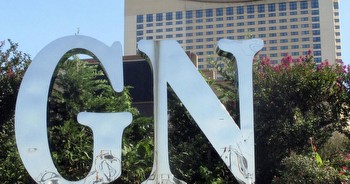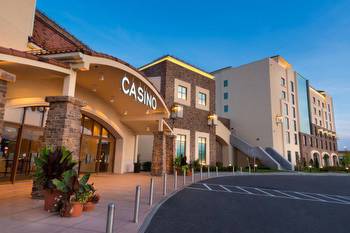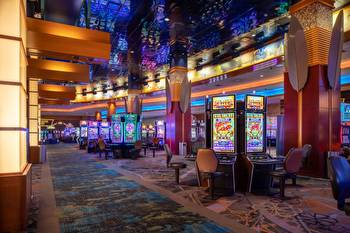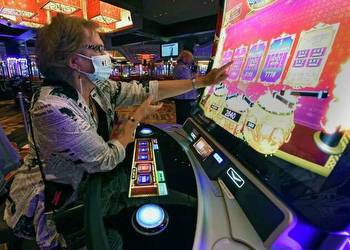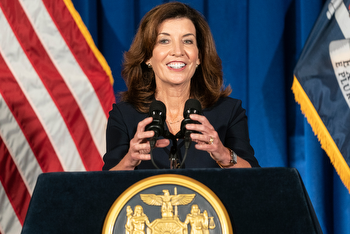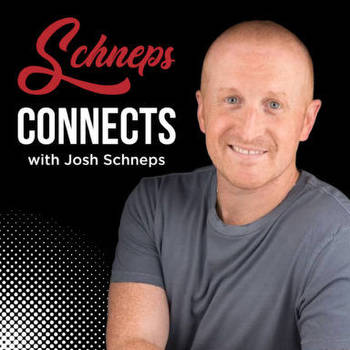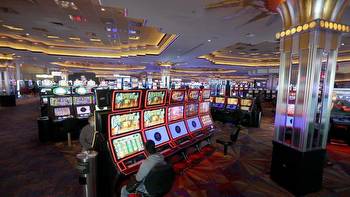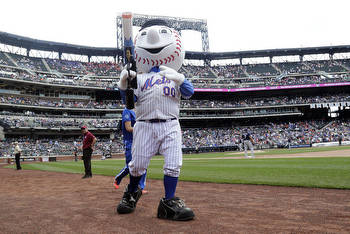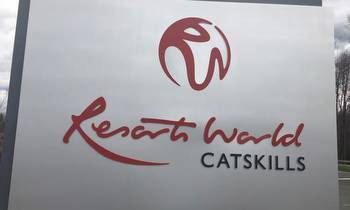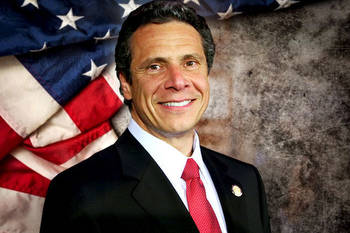Casino operator claims licensing system was 'rigged'
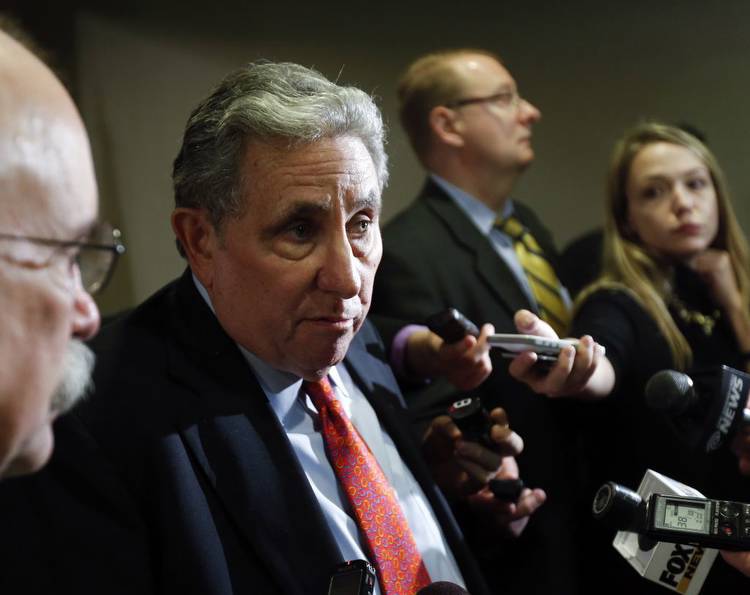
SARATOGA SPRINGS – Inside a luxury trackside restaurant off Saratoga Race Course, dozens of gambling magnates gathered this week for an annual conference. Two days of discussions were mostly staid, but that changed during a final panel of gaming leaders held late Tuesday, when an acerbic upstate casino mogul began making public accusations.
Gov. Andrew M. Cuomo’s administration, Jeffrey Gural told the audience in scathing remarks lasting several minutes," ran a criminal operation."
Gural, who owns the Tioga Downs casino in the Southern Tier, said in an interview that the believes in 2014 – after New York legalized full-scale casino gambling – Cuomo’s administration had “rigged” the process of bidding out the three initial licenses to casino operators.
“I think they had some scheme up their sleeve, as to who would be the winners and who would be the losers – with me being the loser,” Gural said.
Gural charges that the Cuomo administration pulled a bait-and-switch. He alleges that in 2014, Cuomo's office spread word that Gural would win one of the three licenses – tamping down opposition to a competing proposal – then gave the license to the competing proposal.
Until recently, Gural had relatively friendly relations with Cuomo. Since the governor took office in 2011, Gural and his wife had donated $191,000 to Cuomo’s campaign, and donated $375,000 more to support the 2013 ballot initiative that legalized casino gambling in New York, an effort backed by Cuomo.
But Gural is furious about the Cuomo administration’s shaping of newly legalized online sports betting in New York. The state Legislature's proposal for sports betting was much more generous to potential operators, such as Gural, than the plan Cuomo insisted upon, which sought to maximize tax revenue. Even before the state attorney general's Aug. 3 report detailing alleged sexual harassment by Cuomo, and leading to his impending resignation, Gural had begun slamming Cuomo publicly.
Cuomo is scheduled to resign next week, and his administration is in the midst of a new bidding process, this time to grant licenses to operate online sports betting in New York.
Gural – a major Manhattan real estate developer, who is a significant player in the gaming industry in both New York and New Jersey – is basing his allegation on second-hand information. He contends he learned the information from a gambling executive from Delaware North Companies, who allegedly told Gural about the machinations. The gaming official, Chris Riegle, would not directly answer questions about Gural's account when reached by the Times Union.
Gural also said that in 2019, he attended a holiday campaign fundraiser for Cuomo in Manhattan, where he had a friendly conversation with state budget Director Robert Mujica. During their talk, Gural rehashed his allegations that the 2014 process was “rigged.”
According to Gural, Mujica responded: “Yeah, Howard did that,” apparently referring to Cuomo’s former director of state operations, Howard Glaser.
A spokesman for Mujica told the Times Union that Mujica had no idea what Gural was talking about, noting that Mujica wasn’t working for Cuomo in 2014, and wouldn’t “know anything about what the administration was doing at that time.”
Glaser was prominently involved in Cuomo’s efforts to legalize casinos, and now works in the gaming industry. But Glaser left Cuomo’s office in June 2014 – six months before the December 2014 awarding of New York’s initial three casino licenses – and said he had no knowledge of the scenario outlined by Gural.
Following the legalization of casino gambling in a 2013 constitutional amendment, the state Gaming Commission released a map of the three economically distressed areas of New York eligible to win up to four casino licenses, including the eastern Southern Tier.
At this point, Gural said he became suspicious. The Southern Tier of New York was drawn to include a sliver that ran northward up to Lake Ontario, through Wayne County – an area of the state typically considered to be well north of the Southern Tier region. According to the Cuomo administration’s economic development arm, Empire State Development, Seneca County is considered to be part of the Finger Lakes.
The “Southern Tier” sliver on the casino siting map included del Lago in Seneca County – a racino owned by Peninsula Pacific Entertainment that was planning in 2014 to bid for one of the full-scale casino licenses.
On Sept. 24, 2014, the state Gaming Commission held a day-long hearing examining which applicant or applicants to select in the Southern Tier.
One gaming interest that would have been natural opposition to del Lago getting a license: the Finger Lakes racino and racetrack, which is owned by Delaware North, the politically powerful global firm based in Buffalo that spends hundreds-of-thousands of dollars a year on Albany lobbying.
But according to transcripts of the Gaming Commission’s hearing for the Southern Tier, no one from Delaware North testified.
According to Gural, that’s because ahead of the hearing, Delaware North’s president, William Bissett, had a conversation with Cuomo’s office. And at this meeting, Gural said, Bissett was told that Gural’s racino was set to win the license to be given out in the Southern Tier region.
Gural’s Tioga Downs is a nearly two hour drive from the Finger Lakes racino owned by Delaware North. So unlike del Lago, only a half hour’s drive from the Finger Lakes racino, Gural was not a direct competitor to Finger Lakes.
As a result of the conversation with Cuomo’s office, Delaware North officials declined to testify against the prospect of del Lago winning a license, since they believed that Gural had already been wired to win, Gural said.
Gural said that he was told of the conversation with Cuomo’s office by Riegle, who is a top New York official with Delaware North and who was president of Finger Lakes Gaming. Riegle, who did not attend the meeting with Cuomo’s office, had allegedly learned about the conversation from Bissett.
On the day of the 2014 hearing, according to Gural, Riegle called Bissett twice to double-check that Delaware North should not testify in opposition to the del Lago proposal, since Gural was going to win anyway.
Asked about a 2014 meeting between Delaware North’s Bissett and Cuomo’s office – and whether Cuomo’s office had said that Gural was going with the Southern Tier bid – Riegel told the Times Union: “You should talk to the people that spoke with the governor’s office.”
Asked whether he’d told Gural multiple times about such a meeting, Riegle said, “I’m not having this conversation with you,” and hung up.
Bissett, who retired as Delaware North’s president in 2013, did not respond to phone calls and emails seeking comment. (Delaware North has been in the news since Cuomo announced his resignation on Aug. 10: Its highly paid senior vice president and general counsel is William Hochul, the husband of Lt. Gov. Kathy Hochul, who is scheduled to be sworn in as governor next week.)
In December 2014, the state Gaming Commission announced the three winners of upstate casino licenses. Gural’s racino was not one of them; del Lago was.
That outcome led Gural to suspect that Cuomo’s office pulled a bait-and-switch, telling Delaware North that Gural was going to win, so that politically powerful Delaware North would not oppose the selection of Peninsula Pacific Entertainment's del Lago Resort and Casino during the bidding process.
Glaser – who spoke to the Times Union after serving as a panelist at the Saratoga Springs racing conference this week – said he is unfamiliar with Bissett, the former leader of the politically powerful Buffalo gaming and hospitality company.
As for what role the Executive Chamber played in the 2014 casino siting, Glaser reiterated, “I wasn’t there; I didn’t have anything to do with that.”
In selecting del Lago, the Gaming Commission notes that Tioga Downs bid had a proposed capital investment of $128 million, while del Lago had proposed a $425 million capital investment. As for the casino siting map, drawing the Southern Tier up to Lake Ontario, the Gaming Commission notes that the regions were drawn by the Legislature and defined in the statute.
After some outcry in the Southern Tier following the initial December 2014 selections, including from then-state Sen. Tom Libous, who was an influential lawmaker, Cuomo wrote a letter to the Gaming Commission less than two weeks later asking it to reopen the bidding for a fourth casino license, which would be granted in the Southern Tier.
The Gaming Commission did, and Gural ended up being the only applicant to apply that round. He agreed to substantially increase the investment he would make in the casino and won the fourth license.
According to Gural, the scenario feared by Delaware North – that a full-scale casino 27 miles away would cannibalize business – quickly became true upon del Lago’s opening in 2017. Yet Delaware North and its Finger Lakes racino ended up profiting anyway, he said: The state substantially lowered the racino's tax rate, more than making up for the losses.
Jason Gough, a spokesman in Cuomo’s office, strongly disputed the allegations laid out by Gural.
“This nonsense is being spewed by a malcontent who is criticizing a highly transparent process that ultimately awarded Tioga Downs a casino license after it increased its investment,” Gough said. “The Executive Chamber had no role in the site-selection process, which followed the law approved by the Legislature, which clearly defined zones for casino license awards.”
Gough did not, however, provide any information about a 2014 meeting between Delaware North and Cuomo’s office.








